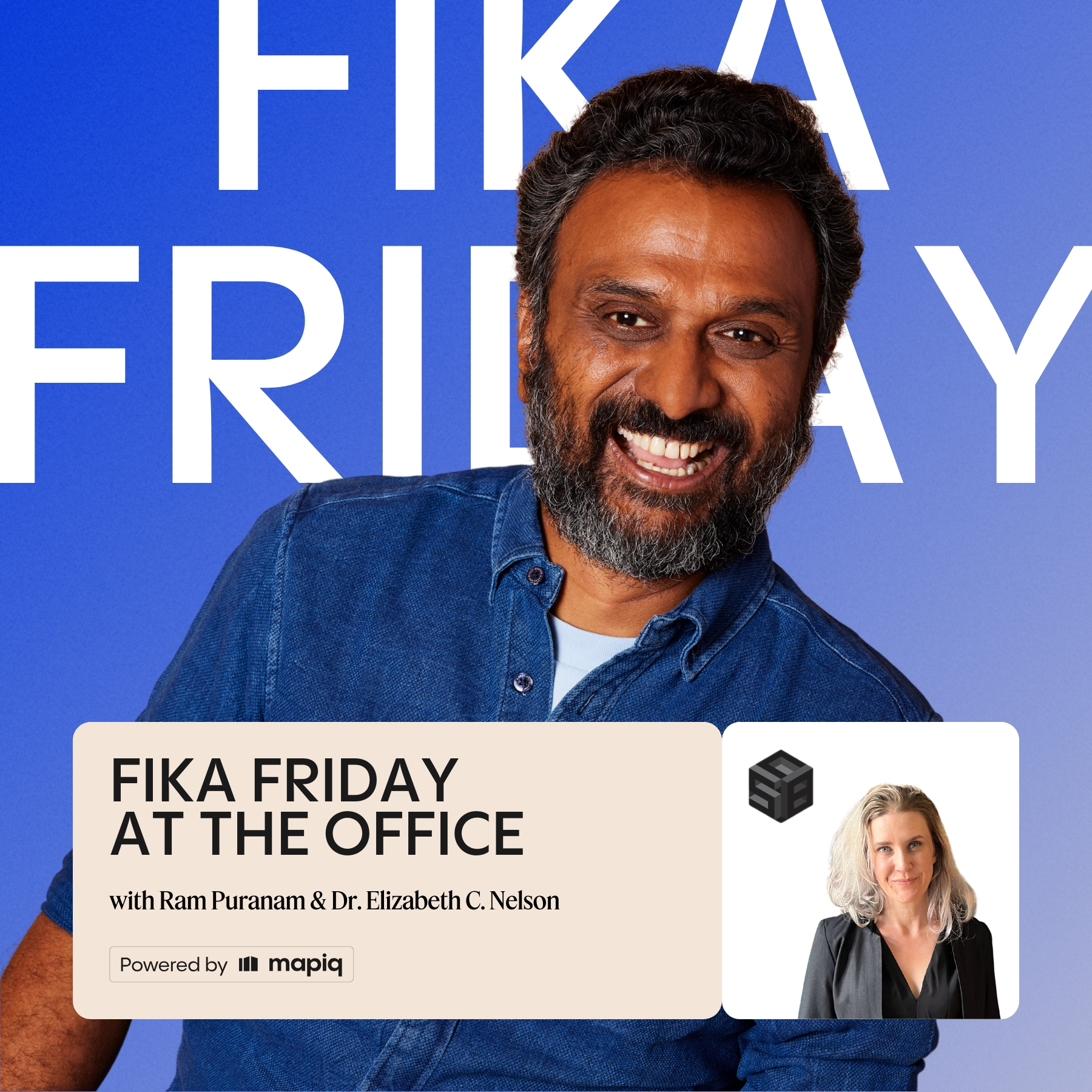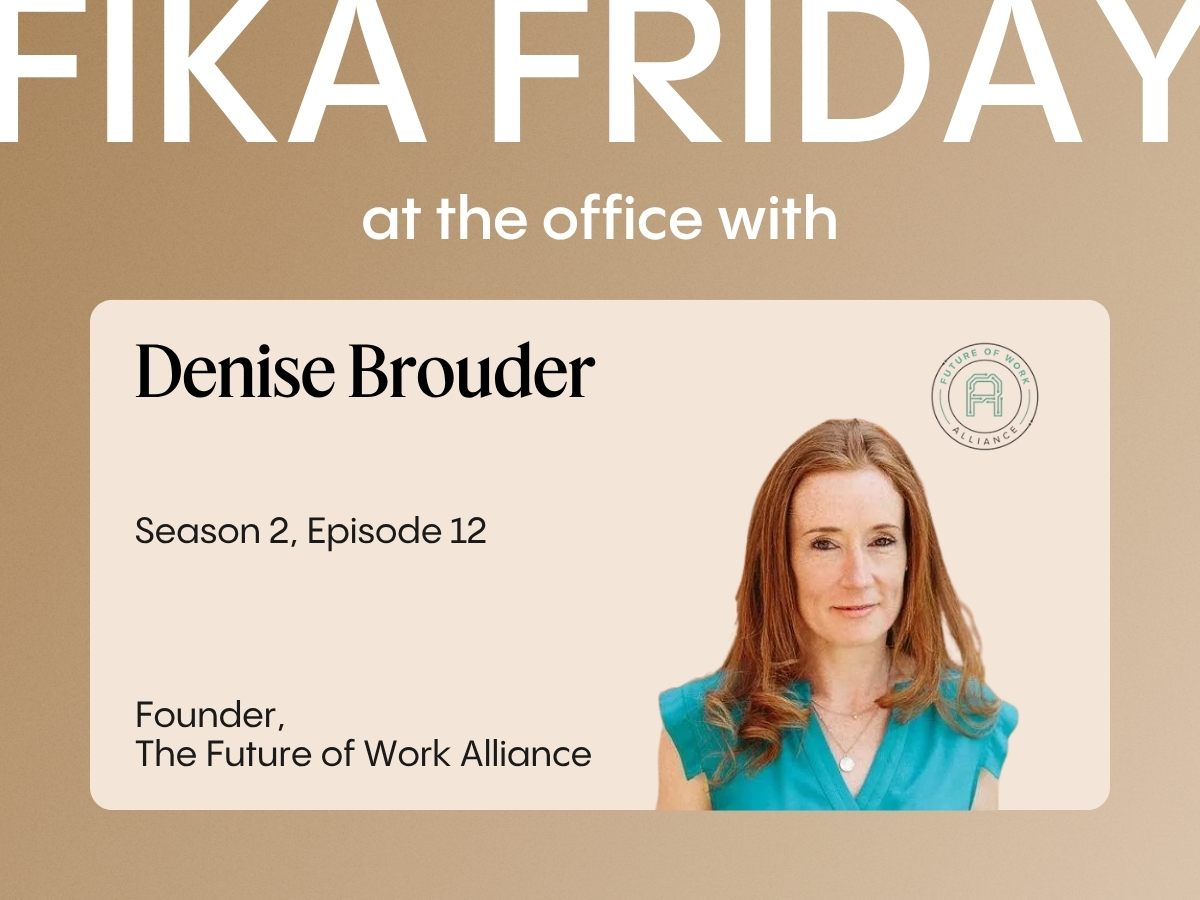
When you walk into Mindera’s Porto office, there’s no corner suite. No executive parking spot. No layer of management shielding decisions from the people doing the work.
In this episode of Fika Friday at the Office, I sat down with Luis Simões, co-founder of Mindera, to talk about what it really means to work without hierarchy. With over 1,200 people spread across nine countries, Luis is proving that self-managed organizations are a choice.
“I don’t see myself working in a hierarchical company again. Once you’ve experienced self-management, it’s very hard to go back.”
From Startups to Self-Management
Mindera began with a simple idea: strip away bureaucracy so that people could actually focus on work they enjoy. Luis and his co-founders, engineers frustrated by endless meetings, set out to build an organization with minimal managerial layers and maximum trust.
Instead of approvals, there are conversations. Instead of top-down control, there’s distributed responsibility. The company grew quickly, reaching 300 people within three years and continuing to expand across continents, from India to Morocco to the U.S.
Culture as a Living System
Luis compares Mindera’s culture to a city. Not everyone experiences it the same way, and that’s the point. Culture at Mindera emerges. Different teams form their own ways of working, guided by shared principles like care, autonomy, and adaptability.
The company even co-authored its own open handbook as a Google Doc, allowing anyone to contribute. The goal was to capture the spirit of how they work, in their own words.
“We let people find their own way to work. That’s the secret.”
Remote by Design, Connected by Intent
While Mindera is remote-first, it also has physical offices for teams who want to gather in person. The approach is flexible, but not chaotic. Teams decide together how they work: synchronously, asynchronously, or something in between, based on what the project needs.
This philosophy of local autonomy also applies to global expansion. New offices are often seeded by personal relationships, not market analysis. “We expand where we have people we trust,” Luis explains.
AI, Autonomy, and the Future of Work
Luis sees AI not as a threat, but as a catalyst for shifting human energy away from repetitive work and toward what really matters. He believes the companies that will thrive are those capable of adapting quickly, shapeshifting without bureaucracy slowing them down.
“We’re not trying to be trendy. We’re just building a company that can evolve.”
Luis doesn’t claim Mindera is a model for everyone. But he is sure of this: if we want work to keep up with the pace of change, we’ll need organizations that value trust, adapt quickly, and treat culture like something living.
Final Thoughts
Luis Simões doesn’t pretend to have all the answers. What he has is clarity and a deep belief in people’s ability to figure things out together, if you just get out of their way.
What struck me most in this conversation wasn’t the novelty of Mindera’s model. It was how grounded it felt. No fancy frameworks. No over-polished org charts. Just a company built on the idea that people want to do good work and will, if we trust them enough.
In a world that keeps changing how we work, Luis reminds us that some things stay the same: the need for autonomy, for belonging, for trust. The future of work doesn’t have to be rigid. It doesn’t have to be chaotic. It just has to be human.
Listen to the full episode with Luis Simões and discover what work looks like when hierarchy is optional and trust leads the way. Catch Fika Friday at the Office wherever you get your podcasts.




